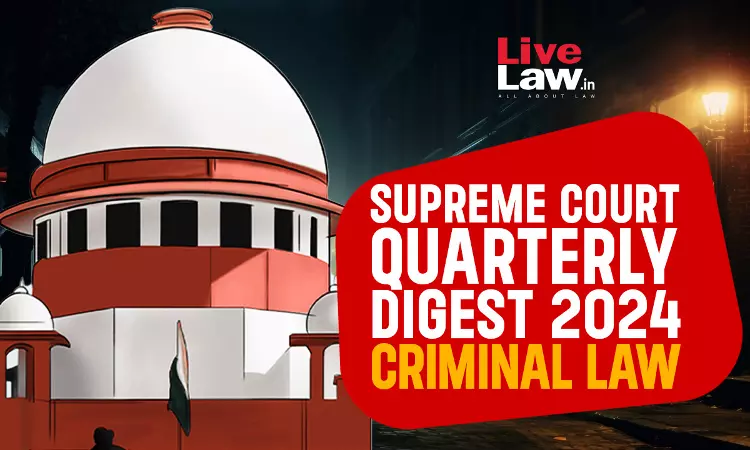- Home
- /
- Supreme court
- /
- Supreme Court Quarterly Criminal...
Supreme Court Quarterly Criminal Digest 2024
LIVELAW NEWS NETWORK
27 May 2024 12:53 PM IST
AcquittalAppeal from acquittal – Principles of deciding – Appreciation of evidence is the core element of a criminal trial and such appreciation must be comprehensive i.e. inclusive of all evidence, oral or documentary. Partial or selective appreciation of evidence may result in a miscarriage of justice and is in itself a ground of challenge. If the Court, after appreciation of...
Next Story



